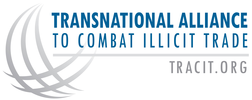|
This article was originally published by the Brand Protection Professional: A Practitioner’s Journal (BPP)
You and everyone you know have run across a counterfeit while shopping online. While we were trapped inside during the pandemic, we turned to ecommerce as the only source for the things we needed most from essentials (remember the illusive search for toilet paper) to items that would make us feel better about working, dining, and sleeping all day every day in the same place. The surge in online shopping brought on by the pandemic has stayed with us. Now we can buy anything, anywhere and it will arrive almost immediately, which is perfect for a society that more and more demands instant gratification. As with every good thing, however, criminals figure out ways to profit by exploiting weaknesses on online platforms and the consumers that shop there. Selling and profiting on counterfeits in an online environment – where there is lax oversight and a focus on facilitating sales without the same due diligence requirements in place for brick-and-mortar stores – has become a significant consumer protection problem that must be addressed immediately. The Transnational Alliance to Combat Illicit Trade (TRACIT), a US-based independent multinational business association, is focused on stopping counterfeit and illicit goods across ten industries by addressing all forms in which they are traded. Our experience is that brand owners are committed to protecting their intellectual property and their brands and invest significant time and resources into working with ecommerce and social media platform, employing technologies and bringing legal enforcement actions aimed at eliminating counterfeits that potentially harm with products that do not meet regulatory and safety standards. Fortunately, Congress passed the INFORM Consumers Act last year. This is a crucial, albeit small step along the path to ensure that consumers have a safe and secure online shopping experience. For the first time, online marketplaces will have to conduct some basic due diligence to better vet their third-party sellers and disclose key information about the sellers to consumers. Also, importantly, platforms must have an easy-to-use portal on each product listing for consumers to report suspicious activity. The Federal Trade Commission is enforcing the law and stiff fines are available for violations. We need to go further to incentivize online marketplaces by creating liability if they do not implement certain best practices. When a platform involved with the transaction guides, encourages, and controls every step of the interaction between buyer and a merchant; when it actively promotes, controls, consummates, and guarantees the transaction, that platform is far more than an internet venue that connects purchasers and merchants. It is now facilitating the sale of counterfeits and must take responsibility for its role. For the reason, the liability provisions of the SHOP SAFE Act of 2023 are the essential next step in responsible public policy to protect consumers. Currently ecommerce and social media platforms are telling us they are regularly removing thousands and thousands of fraudulent products listings. Now is the time for standardized and enforceable best practices across online marketplaces to insure they stop the bad actors from ever listing their counterfeit products in their stores from the get-go, and bar counterfeiters from accessing their platforms after repeatedly violating their terms. The SHOP SAFE Act of 2023 does just that. The bill makes online marketplaces more accountable for implementing key best practices. It provides a safe harbor from liability if platforms proactively screen against fakes and counterfeits; promptly remove counterfeit listings; enforce their policies; communicate with brands and law enforcement; and ban counterfeiters from hopping back on their platforms. Voluntary and inconsistent practices are not working. Let’s take the next step to better protect our consumers, our economic and national security. Let’s work together to bar repeat offenders from ever being able to sell in their marketplaces again. Let’s pass SHOP SAFE in the US and make it a global standard. Cindy Braddon Head of Communications and Public Policy, TRACIT Comments are closed.
|
About tracit talking pointsTRACIT Talking Points is a channel we’ve opened to comment on current trends and critical issues. This blog showcases articles from our staff and leadership, along with feature stories from our partners in the private sector and thought-leaders from government and civil society. Our aim is to deepen the dialogue on emerging policy issues and enforcement measures that can be deployed against illicit trade.
Categories
All
Archives
February 2024
|
|
Transnational Alliance to Combat Illicit Trade (TRACIT) is an independent, non-governmental, not-for-profit organisation under US tax code 501(c)(6).
© COPYRIGHT 2024. ALL RIGHTS RESERVED. |
Follow us
|
